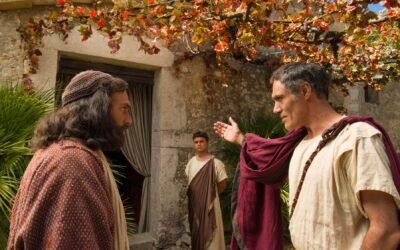“The ultimate fulfillment of the Great Commission is church planting. Any Great Commission initiative that does not result in the forming of new churches misses the mark.” Dave Early
It is very popular to talk about and participate in church planting movements today. Most mainline denominations embrace planting new congregations (including multi-campus sites) as the new wave of evangelism. Church planters understand new churches typically grow 3X faster than those established for more than 10 years and gain 60-80% from new conversions. New churches are not competing with older churches. We need both.
Jesus is building His church. He never clearly told His disciples to form new congregations. It was implied from His explicit commands to preach the gospel, baptize believers, make disciples of converts and equip saints for works of service. All these tasks together were to happen in the context of a Christian faith community. The Apostle Paul’s method of evangelism was to plant new congregations indigenous to the cultures where they were planted. This was the apostolic model.
 There is a wide variety of church planting approaches. Churches take on different forms depending on the “soil” they are planted in. The way we “do” church falls more into the category of “different” than right or wrong. From the earliest days of the Church we see a simple model of what they did when they gathered. “They were “continually devoting themselves to the apostles’ teaching and to fellowship, to the breaking of bread and to prayer.” Acts 2:42. This was their liturgy.
There is a wide variety of church planting approaches. Churches take on different forms depending on the “soil” they are planted in. The way we “do” church falls more into the category of “different” than right or wrong. From the earliest days of the Church we see a simple model of what they did when they gathered. “They were “continually devoting themselves to the apostles’ teaching and to fellowship, to the breaking of bread and to prayer.” Acts 2:42. This was their liturgy.
Years ago, I was speaking at a “house church” in Tampere, Finland. I was praying in my bedroom before the “service” began. I don’t remember, but I may have been questioning the legitimacy of this gathering as a church. The Lord asked me this question: “What makes a church, a church?” He then gave me the simple answer. A church is where people grow up, grow together, and grow out. Hmm. Not complicated. Profoundly simple. Scripturally accurate.
Several years later I was reading a book titled The Master Builder. In one chapter, co-author Dick Durkin is writing on Apostolic Vision. He asks, “What are the three parts of God’s vision [for the church]?
- To be individually and personally conformed to Jesus Christ; to know Him and be like Him in all things. [Grow up]
- To be in complete unity with all of our brothers and sisters in Christ, in the bonds of covenant love. [Grow together]
- To proclaim the gospel to all men in every nation on earth. [Grow out].”
This confirmed to me the simple blueprint of the Church Jesus is building. I have since taught it to church leaders around the world.
 In my personal study of missiology, I learned the measure of success in completing the Great Commission was to look to those “people groups” who were still without a gospel witness. This remains a valuable target and tool to determine our impact, but missiologists now go further and ask how many people groups do not have an indigenous church. I personally think this is a more accurate measure of our progress. People are evangelized and converted through the proclamation of the gospel, but they are discipled and equipped through the local church.
In my personal study of missiology, I learned the measure of success in completing the Great Commission was to look to those “people groups” who were still without a gospel witness. This remains a valuable target and tool to determine our impact, but missiologists now go further and ask how many people groups do not have an indigenous church. I personally think this is a more accurate measure of our progress. People are evangelized and converted through the proclamation of the gospel, but they are discipled and equipped through the local church.
So, why plant new churches? Because every human has the right to NOT ONLY hear the gospel, but to grow up into Christ, grow together in love with other believers and grow out by reaching others. People do this as a part of the local church. It does not matter whether the church congregates in a home, on a hillside, a store-front or a cathedral: The Church of Christ has many different expressions. (Believe me, I’ve done church in every one of those!)
It is estimated that of the 7+ billion people alive in the world today, nearly 3 billion live in unreached people groups with little or no access to the Gospel of Jesus Christ. According to Joshua Project, there are approximately 16,500 unique people groups in the world with about 6,900 of them considered unreached. I can say with confidence, there remains plenty of opportunity to plant new churches.
 Gail and I have been devoted to establishing and building churches for all our years in ministry. We have pastored for a season using the house church model. We have served on staff at churches and in the capacity of administrator, consultant, coach, instructor for many churches in the U.S. and globally. Presently, we personally support several church and bible school plants. We are closely connected with church planters around the world.
Gail and I have been devoted to establishing and building churches for all our years in ministry. We have pastored for a season using the house church model. We have served on staff at churches and in the capacity of administrator, consultant, coach, instructor for many churches in the U.S. and globally. Presently, we personally support several church and bible school plants. We are closely connected with church planters around the world.
A significant part of the Doulos Global vision is to connect people we know with opportunities to plant new churches. Doulos Global has a dedicated bank account and system for sponsoring Church Planters/Pastors. Built into our sponsorship system is a way to evaluate potential Church Planters and accountability to an Overseer. A sponsorship lasts from 1-2 years and costs from $2,000-$5,000. At any time, you can sponsor/partner with a Church Planter by inquiring with Gail and I. We will set you up with a credible Church Planter and send regular reports on their progress.
Our joy and crown of rejoicing is every life brought into the Family of God because of our obedience and influence. Church planting is another important way we are all completing the Great Commission of Jesus Christ.





